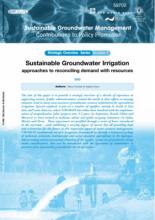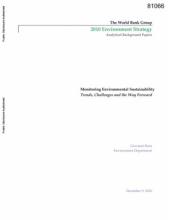Land Library
Welcome to the Land Portal Library. Explore our vast collection of open-access resources (over 74,000) including reports, journal articles, research papers, peer-reviewed publications, legal documents, videos and much more.
/ library resources
Showing items 1 through 9 of 27.One of the most compelling reasons for pursuing low-carbon development is that the potential impacts of climate change are predicted to be severe, for both industrial and developing countries, and that reducing greenhouse gas emissions can reduce the risk of the most catastrophic impacts.
Urbanization and climate change will define much of the 21st century. Urbanization leads to improvement in standards of living, and through the increased density and service delivery efficiency of cities, higher growth can be achieved with lower greenhouse gas emissions.
The world development report 2010 estimates that an additional $200 billion per year of climate-related financing is needed in developing countries between now and 2030 to keep global average temperature rise within 2 degrees Celsius.
The aim of this paper is to provide a strategic overview of a decade of experience in supporting public administrations in their efforts to confront excessive groundwater resource exploitation for agricultural irrigation.
This report synthesizes the findings for the energy sector of a broader study, the Brazil low carbon study, which was undertaken by the World Bank in its initiative to support Brazil's integrated effort towards reducing national and global emissions of greenhouse gases while promoting long term d
In 2005, the Millennium Ecosystem Assessment (MA, 2005) provided the first comprehensive report on global ecosystems, the dependence of human societies on the services provided, current state, and likely future trajectory.
This report presents a concise review of the major environmental and natural resources issues at the global and national level over the coming two decades.
Current international financing (primarily ODA) for environmental services in developing countries is very roughly estimated to be upwards of $21 billion annually (not including climate change financing), but additional resources on the order of tens, if not hundreds, of billions of dollars are n
The Strategic Framework for Development and Climate Change (SFDCC) approved in 2008 guides and supports the operational response of the World Bank Group (WBG) to new development challenges posed by climate change.









